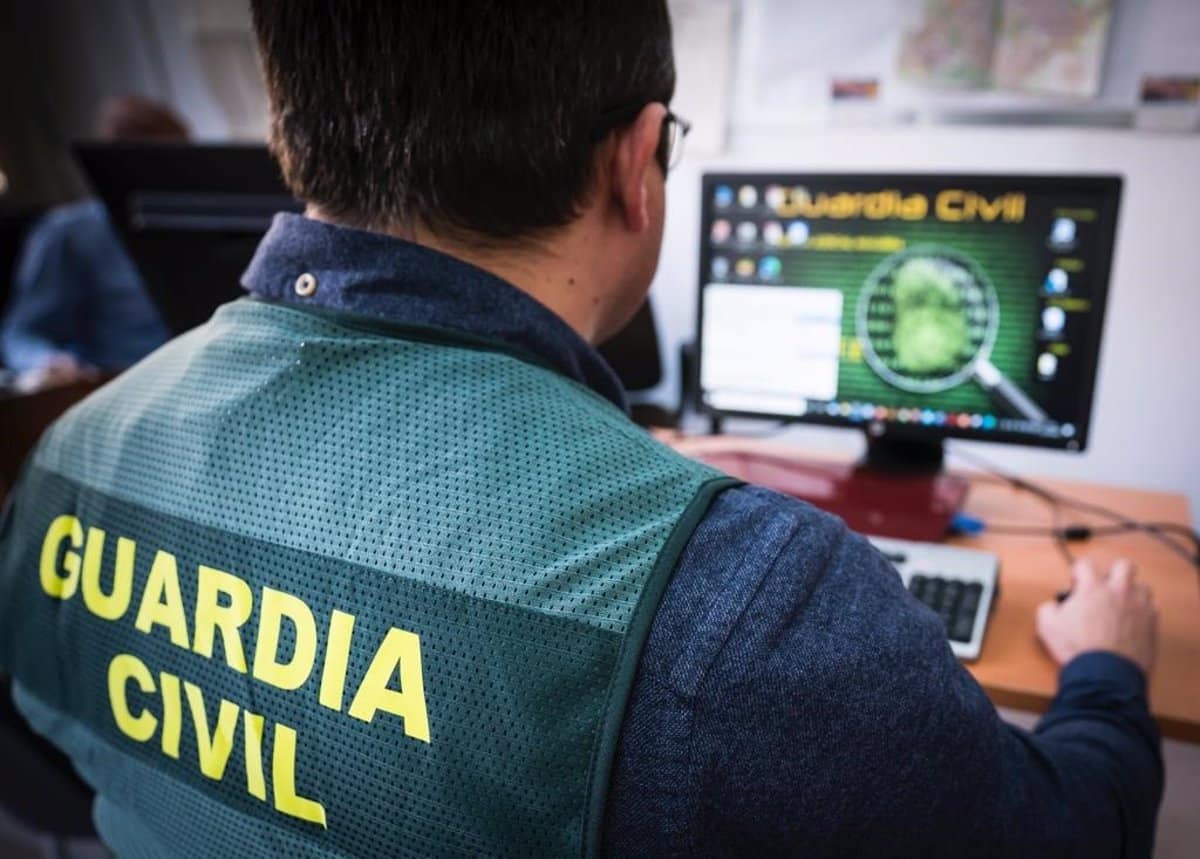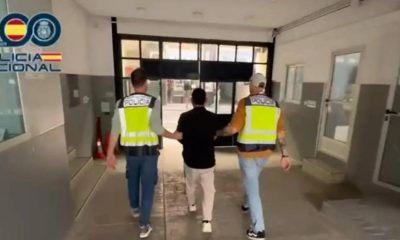Costa Blanca
Four injured in RTA in Orihuela

The Emergency Information and Coordination Centre (CICU) and the Alicante Provincial Fire Consortium have reported that a multi-vehicle accident on Avenida Marqués de Molins in Orihuela (Alicante) on Sunday resulted in the injuries of four individuals: a 27-year-old man, two women aged 25 and 50, and a two-year-old boy.
A heavy urban fire department (BUP), a rescue vehicle (FSV) with a corporal, and three firefighters from the Orihuela fire station were dispatched to the scene after the complaint was received at 15:11 on Sunday 16th March. In the interim, the Civil Emergency Unit (CICU) dispatched two rescue vehicles and a SAMU ambulance.
All four individuals received treatment for injuries. Subsequently, an emergency medical technician transported the 27-year-old man and the infant to Vega Baja Hospital. The two women were also transported to Elche General Hospital by an emergency medical technician.
Discover more from Costa Blanca Daily
Subscribe to get the latest posts sent to your email.
Costa Blanca
Beware if you receive an orange envelope in your postbox

With the advent of digitalisation, home fraud has not eradicated. Despite the fact that online schemes generate headlines and arouse apprehension, certain criminals persist in employing conventional methods to defraud citizens, occasionally integrating these traditional methods with more contemporary ones. In this regard, there has been recent discussion regarding a form of fraud that entails an everyday object, such as a plain orange envelope. This scam entails the insertion of letters that are visually appealing into the receptacles of individuals.
The envelopes either lack a return address or appear to be from official agencies, banks, or well-known corporations. The victims’ attention is captured through the use of phrases such as “urgent notice” or “last chance” and bright colours. The objective remains consistent: to elicit an immediate and emotional response.
An envelope may contain a letter containing instructions that, if followed, could compromise confidential information or access to bank accounts. In certain instances, a phone number that refers to premium-rate services or links to fraudulent websites via QR codes are included. In this type of fraud, psychological pressure is a critical factor: the language employed is designed to instill fear or urgency, particularly in elderly individuals.
How to identify and respond to a suspicious letter
The messages frequently include legal or administrative terms, such as “embargo,” “fine,” or “cancellation of services,” which are designed to duplicate official notifications. Under no circumstances should the instructions in the letter be implemented. The primary suggestion is to refrain from making calls to the number provided, refrain from scanning any QR codes, and consistently confirm the authenticity of the message with the purported sender through official channels.
If the fraud is verified, the most effective course of action is to destroy the letter and, if uncertain, notify the authorities. The most effective defence against this type of scam is prevention, as it exploits the normal appearance of traditional correspondence to infiltrate residences without eliciting immediate suspicion.
Discover more from Costa Blanca Daily
Subscribe to get the latest posts sent to your email.
Costa Blanca
Fugitive sought by the Slovak authorities arrested in Torrevieja

A 41-year-old Slovak male who was the subject of a European arrest warrant issued by his country of origin has been apprehended by Guardia Civil officers. He was a fugitive from Slovak justice and was apprehended during a police operation.
The detention occurred on March 29th as part of a preventative operation that was implemented in one of the municipality’s busiest leisure areas. The objective was to regulate the entry of individuals and vehicles into the port area, which is a frequent gathering spot on weekends.
Officers identified a vehicle whose operator endeavoured to circumvent police control during the operation. Officers intercepted the vehicle, which was transporting two individuals, in response to this suspicious conduct.
Officers encountered that one of the passengers was being pursued by Slovak authorities upon identifying the occupants. The individual, who had been residing in Spain since mid-2024, was promptly apprehended.
The detainee was subsequently brought before Central Investigative Court No. 2 of the National Court, which ordered his remand in detention pending his extradition to Slovakia.
Discover more from Costa Blanca Daily
Subscribe to get the latest posts sent to your email.
Costa Blanca
Six arrested for the use of AI to defraud over 19 million euros

As part of Operation Coinblack-Wendimine, the Guardia Civil and the National Police have apprehended six individuals between the ages of 34 and 57 who are purportedly affiliated with a criminal organisation that is accused of defrauding over €19 million from 208 victims through fraudulent cryptocurrency investments.
The investigation was conducted in a variety of locations throughout Alicante and Granada. Agents conducted a search of the residence of the organisation’s primary commander in Spain, who was preparing to leave for Dubai. They confiscated a fake gun, extensive documentation, numerous mobile phones, computers, and hard drives.
Two years ago, a man in Granada reported that he had been defrauded of €624,000, which sparked the operation. Officers discovered the network that connected the criminal organisation to cryptocurrency investments that were ultimately discovered to be fraudulent. Concurrently, the National Police in Alicante were conducting an investigation into the same network, which encompassed the offence of document forgery.
The organisation advertised on a variety of websites that were associated with cryptocurrency investments and featured prominent figures. Additionally, the victims were not chosen at random; rather, algorithms selected those whose profiles corresponded with the cybercriminals’ enquiries.
After selecting their victims, they placed advertising campaigns on the websites or social media platforms they used, promising them cryptocurrency investments with high returns and no danger of financial loss. These investments, of course, turned out to be scams. After selecting their victims, they established advertising campaigns on the websites or social media platforms they utilised, promising them cryptocurrency investments with high returns and no danger of financial loss. These investments, of course, proved to be fraudulent.
False financial advisors
The cybercriminals gained their trust by masquerading as financial advisors, sometimes even claiming to be in a romantic relationship, and by sending them false information through fake websites with fictitious returns. They urged them to convert all of the money in their accounts to cryptocurrency. Upon deciding to extricate their investment funds, the victims encountered numerous obstacles and impediments, which led them to the realisation that they had been defrauded.
The cybercriminals contacted the victims again after a period of time, assuming the identity of investment managers and informing them that the money had been locked. They also stated that it was possible to retrieve the funds, but in order to do so, they would need to make another deposit, typically in the amount of a substantial sum. The victims, who had reported the incidents, received a message from fictitious Europol agents or lawyers from the United Kingdom, informing them that they had successfully retrieved their money and that the only remaining task was to pay the taxes associated with the country in which it was blocked. Once more, they consented to pay the purported taxes, confident that they would be able to recoup their investment.
The victims, who had reported the incident to the Guardia Civil or the National Police, received a message from fictitious Europol agents or fictitious UK lawyers informing them that they had successfully recovered their money and that the only remaining task was to pay the taxes associated with the country in which it was blocked. Once more, they consented to pay the purported taxes, confident that they would be able to recoup their investment.
Arrests were conducted in Alicante, Torrevieja, Santa Pola, and Villajoyosa. Fraud, money laundering, and falsification of documents within a criminal organisation are all charges against each individual. The ringleader was remanded in detention after being brought before the Alicante Investigative Court. The inquiry continues to be ongoing.
The Technological Crimes Investigation Team (EDITE) of the Organic Judicial Police Unit of the Granada Civil Guard and the Unit against Immigration Networks and Document Forgery (UCRIF-3) of the Alicante National Police conducted the operation, which was overseen by the Granada Prosecutor for Technological Crimes.
Discover more from Costa Blanca Daily
Subscribe to get the latest posts sent to your email.
-

 Costa Blanca5 days ago
Costa Blanca5 days agoBefore Easter, the new road through La Hoya should open
-

 News2 weeks ago
News2 weeks agoWhat is included in the emergency pack that Europe announced?
-

 Costa Blanca2 weeks ago
Costa Blanca2 weeks agoVega Baja students taking part in the Duke of Edinburgh awards
-

 News2 weeks ago
News2 weeks agoMan arrested by National Police for scamming over 200,000 euros
-

 Costa Blanca2 weeks ago
Costa Blanca2 weeks agoUrgent meeting requested by Alicante firefighters to settle labour dispute
-

 Costa Blanca2 weeks ago
Costa Blanca2 weeks agoPortugal has arrested the wanted man who killed John George near Rojales
-

 Costa Blanca2 weeks ago
Costa Blanca2 weeks agoVets protest about the animal drug control regulations
-

 Costa Blanca2 weeks ago
Costa Blanca2 weeks agoMan arrested for five home robberies and another at a cafe in Calpe


















